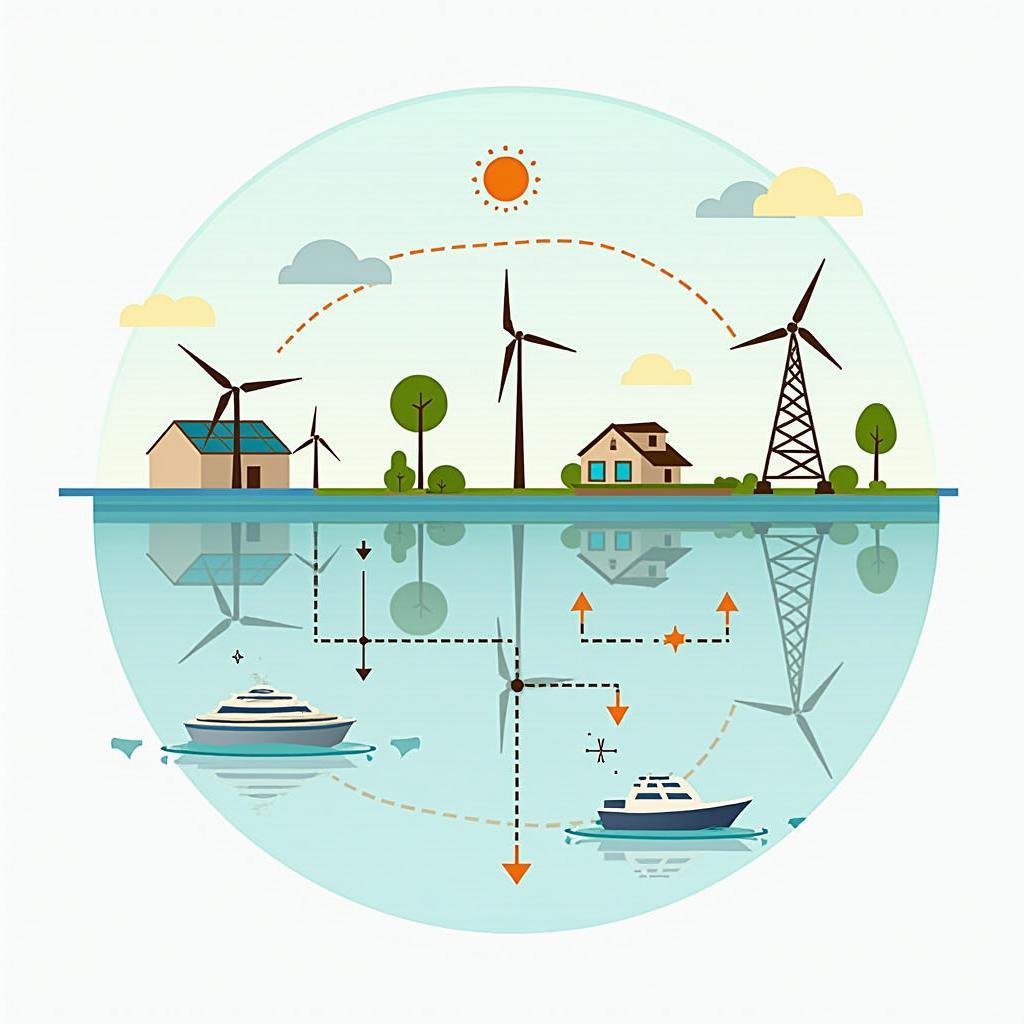The Reading section of the IELTS exam assesses a candidate’s ability to understand and interpret academic and general texts. Historically, topics related to renewable energy and its impact on energy grids have appeared frequently in IELTS Reading passages due to their relevance and timeliness. As global emphasis on sustainable energy grows, the likelihood of encountering similar topics in future exams remains high.
This article provides a comprehensive Reading practice exercise based on the keyword “How does renewable energy adoption impact energy grids?” It includes a sample reading passage, a variety of question types akin to those in the IELTS, detailed answers, common pitfalls, relevant vocabulary, and grammar points to facilitate preparation.
Reading Passage: The Impact of Renewable Energy Adoption on Energy Grids
Renewable Energy and Modern Energy Grids
As the world shifts towards sustainable energy sources, the traditional energy grid, largely reliant on fossil fuels, faces both challenges and opportunities. The integration of renewable energy sources such as wind, solar, and hydropower into existing energy grids necessitates significant modifications to maintain stability and reliability.
Challenges and Technological Adaptations
One primary challenge is the intermittent nature of renewable energy. Unlike conventional power plants that provide a steady output, renewable sources can be variable. For instance, solar power plants generate electricity only during sunny periods, and wind turbines produce energy when it is windy. This inconsistency can lead to supply-demand imbalances if not managed properly.
The introduction of smart grid technologies has become a crucial adaptation. Smart grids employ advanced communication and control technologies to optimize energy distribution and consumption. Through real-time monitoring, smart grids can adjust energy flows efficiently, reducing wastage and ensuring a stable supply even with fluctuating renewable inputs.

Benefits and Environmental Impact
Besides ensuring energy stability, renewable energy adoption significantly reduces the environmental footprint of power generation. Traditional energy sources are major contributors to greenhouse gas emissions, coal being the most polluting. By contrast, renewable energy sources produce little to no emissions. Consequently, integrating renewables into the grid mitigates the impact on climate change.
Another advantage is the diversification of energy sources, enhancing energy security. Reliance on a single or limited number of energy sources poses risks, such as supply disruptions due to geopolitical tensions or resource depletion. A diverse energy portfolio that includes renewables ensures a more resilient energy grid.
Practice Questions
Multiple Choice
- What is one main challenge of integrating renewable energy into traditional energy grids?
- A. High emission rates of renewable energies
- B. Continuous and steady energy output
- C. Intermittent nature of renewable energy sources
- D. High operational costs
- How do smart grids help manage the energy generated from renewable sources?
- A. By increasing the efficiency of fossil fuel plants
- B. Through steady output of energy
- C. By real-time energy distribution and consumption optimization
- D. By producing more greenhouse gases
True/False/Not Given
- Traditional power plants are less reliable than renewable energy sources.
- True
- False
- Not Given
- Solar power is less intermittent compared to wind power.
- True
- False
- Not Given
Matching Information
Match the following statements with the correct sections (A, B, or C) of the reading passage.
- Describes the environmental benefits of renewable energy.
- Discusses the technological adaptations necessary for integrating renewables.
- Highlights the challenges of renewable energy integration.
Sentence Completion
Complete the sentences using words from the passage.
- Smart grids use advanced ____ and ____ technologies to optimize energy flows.
- A major environmental advantage of renewable energy is the reduction in ____ ____ emissions.
Answers and Explanations
Multiple Choice
- C. Intermittent nature of renewable energy sources – The passage states that renewable sources can be variable, leading to supply-demand imbalances.
- C. By real-time energy distribution and consumption optimization – Smart grids adjust energy flows efficiently through real-time monitoring, as explained in the reading.
True/False/Not Given
- False – The passage does not imply that traditional power plants are less reliable than renewable energy sources.
- Not Given – The passage does not compare the intermittency of solar power directly to wind power.
Matching Information
- C – The last section discusses the environmental impact of renewables.
- B – The second section elaborates on smart grid technologies.
- A – The first section introduces challenges like the intermittent nature of renewable energy.
Sentence Completion
- communication, control – The passage describes smart grids using these technologies.
- greenhouse gas – Renewables reduce emissions, mitigating impacts on climate change.
Common Pitfalls
- Overlooking Details: Ensure all details in a passage are considered carefully. Keywords can often provide clues.
- Misinterpretation: Always double-check interpretations to avoid false assumptions.
- Time Management: Practice managing time effectively to ensure all questions are answered.
Vocabulary
- Intermittent (adj.): /ˌɪntərˈmɪtənt/ – occurring at irregular intervals; not continuous or steady.
- Mitigate (v.): /ˈmɪtɪˌɡeɪt/ – make less severe, serious, or painful.
- Optimization (n.): /ˌɒptɪmaɪˈzeɪʃ(ə)n/ – the action of making the best or most effective use of resources or situations.
- Resilient (adj.): /rɪˈzɪliənt/ – able to withstand or recover quickly from difficult conditions.
Grammar Focus
Present simple vs. Present continuous
- Present Simple: Used for habitual actions or general truths. Example: “Renewable sources produce little to no emissions.”
- Present Continuous: Used for actions happening now or temporary actions. Example: “Smart grids are employing advanced technologies.”
Example Sentence
- “The adoption of renewable energy mitigates the impact on climate change.”
Tips for High Reading Scores
- Practice Regularly: Consistency builds familiarity with question types and passage structures.
- Expand Vocabulary: Read widely to improve understanding of diverse topics.
- Time Management: Allocate time for each section and stick to it.
- Understand Question Types: Familiarize yourself with all question formats found in the IELTS Reading section.
By integrating these strategies and focusing on the topic of renewable energy’s impact on energy grids, candidates can confidently approach the Reading section of the IELTS exam.